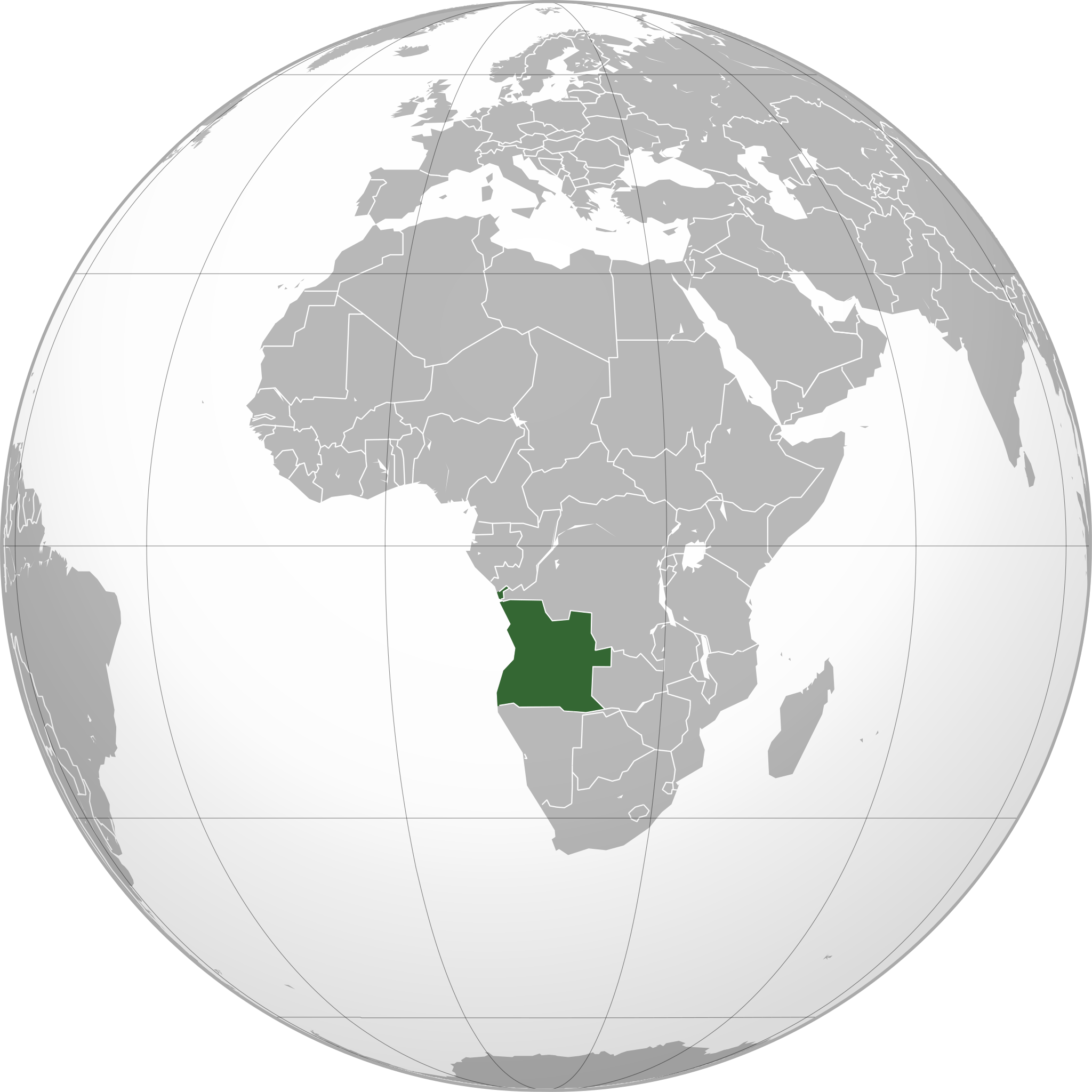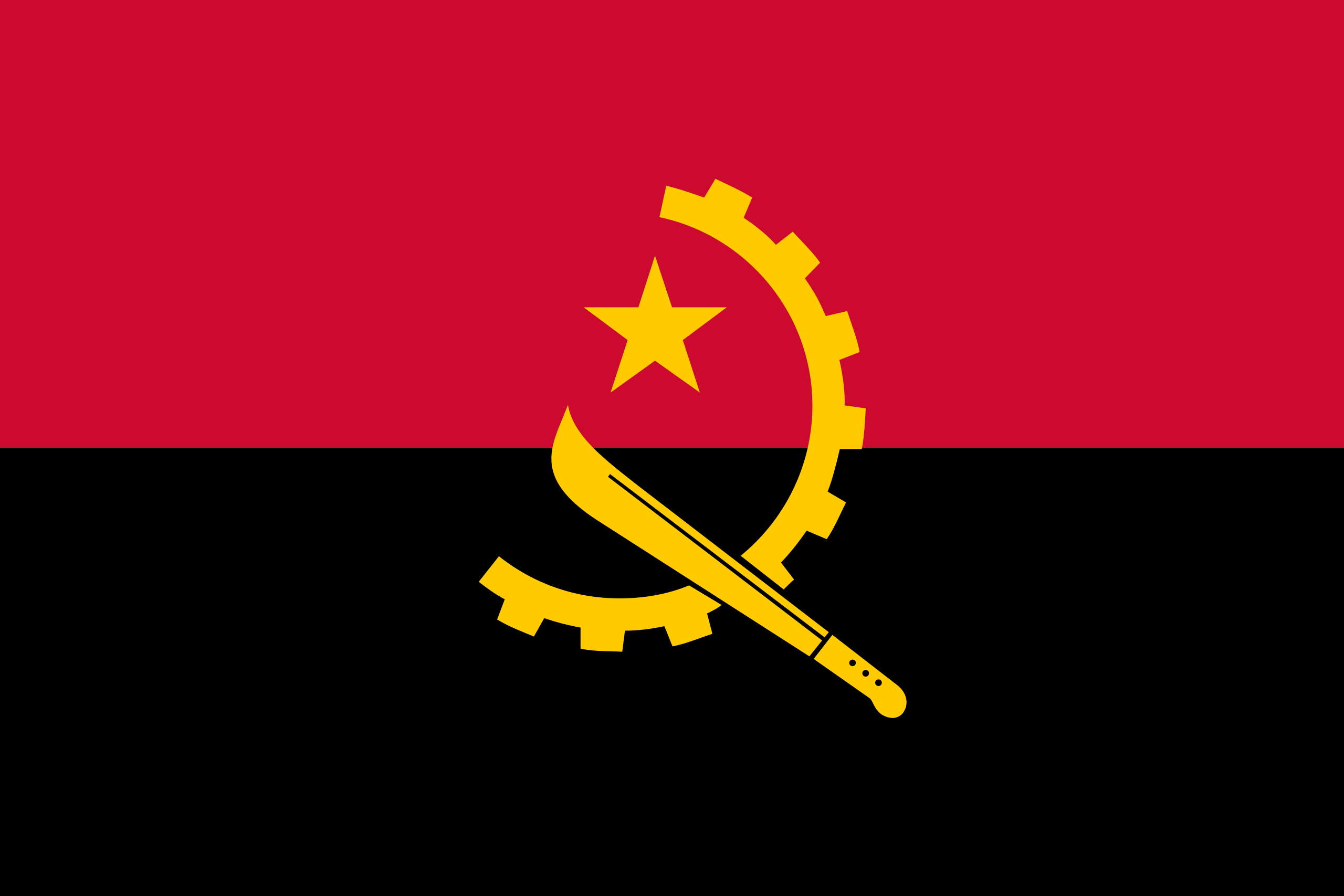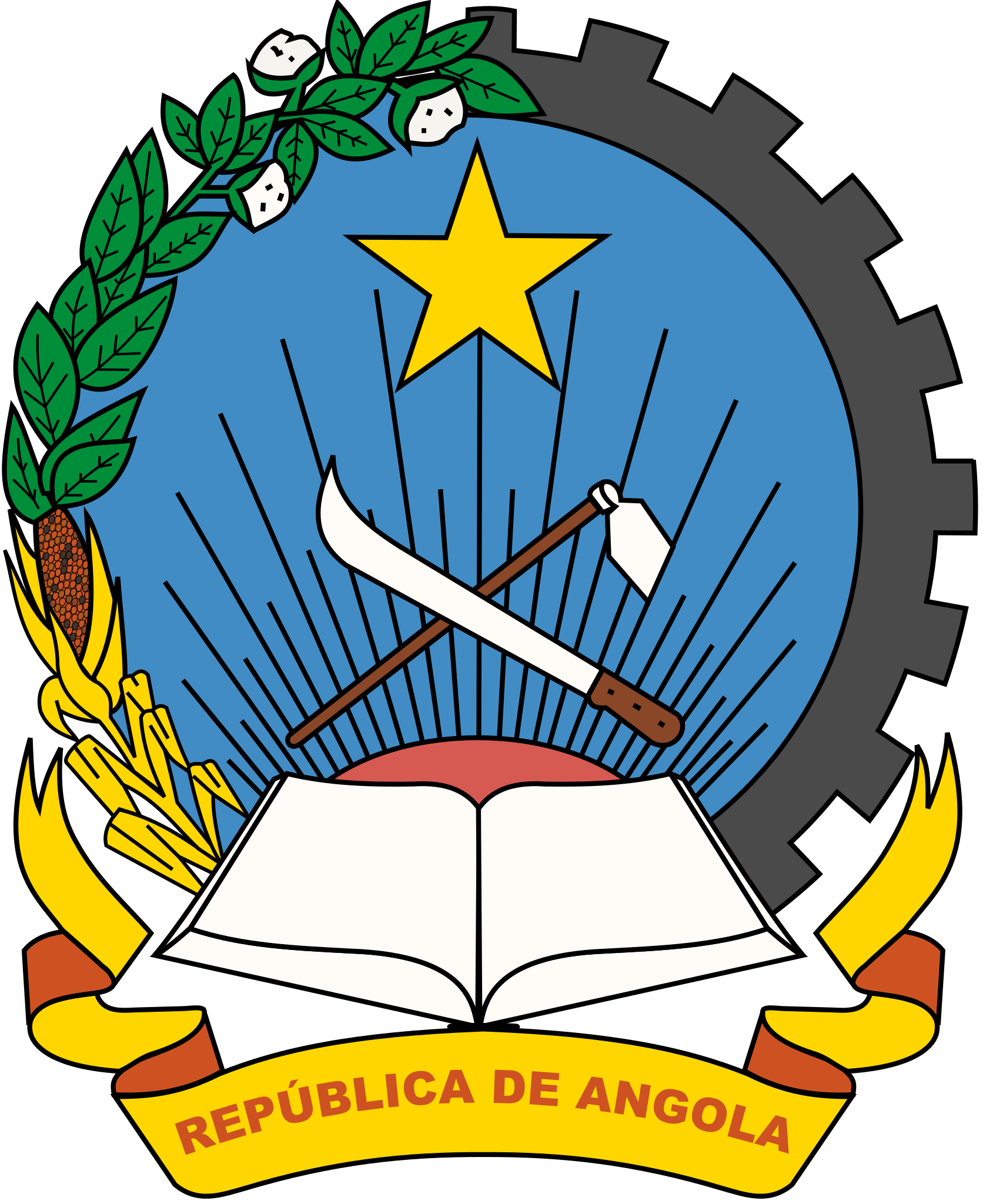More languages
More actions
(Updated Infobox country template parameter) |
m (added categories.) Tag: Visual edit |
||
| Line 7: | Line 7: | ||
<references /> | <references /> | ||
[[Category:Angola]] | [[Category:Angola]] | ||
[[Category:Global south]] | |||
[[Category:Formerly socialist states]] | |||
Revision as of 23:48, 24 July 2022
| Republic of Angola República de Angola | |
|---|---|
 | |
| Capital and largest city | Luanda |
| Official languages | Portuguese |
| Recognised national languages | Chokwe Kikongo Kimbundu Lingala Umbundu |
| Dominant mode of production | Capitalism |
| Government | Presidential republic |
• President | João Lourenço |
• Vice President | Bornito de Sousa |
| Area | |
• Total | 1,246,700 km² |
| Population | |
• 2020 estimate | 31,127,674 |
Angola, officially the Republic of Angola, is a country in Southern Africa. After its independence from Portugal in 1975, it became a Marxist-Leninist state.[1] Henry Kissinger began a CIA-backed civil war against MPLA, the ruling party of Angola, by supporting UNITAS.[2] The war lasted until 2002, causing 800,000 deaths and creating four million refugees.[3]
References
- ↑ William Gervase Clarence-Smith (2021). Angola: 'History of Angola; Independence and civil war'.
- ↑ "Henry Kissinger 'considered Cuba air strikes' in 1976" (2014-10-01). BBC. Retrieved 2022-02-05.
- ↑ Modern Conflicts: Conflict Profile: 'Angola (1975 - 2002)' (p. 1). [PDF] Amherst: University of Massachusetts Amherst.


